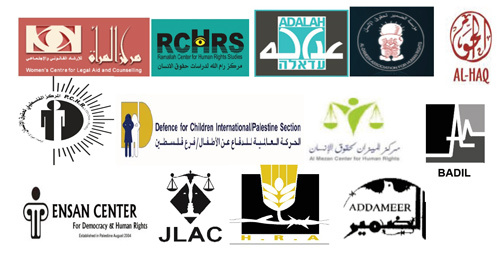- About
- News
-
Advocacy
- Accountability & Litigation
- International Advocacy
- National Advocacy
- Capacity Building
- Documentation
- FAI Unit
- Al-Haq Publications
- Library


- About
- News
-
Advocacy
- Accountability & Litigation
- International Advocacy
- National Advocacy
- Capacity Building
- Documentation
- FAI Unit
- Al-Haq Publications
- Library


To:
EU High Representative for Foreign Affairs and Security Policy Catherine Ashton,
The Foreign Affairs Ministers of the European Union
19 July 2010
Dear High Representative,
Your Excellencies,
As human rights NGOs concerned with the promotion and protection of human rights in the Occupied Palestinian Territory (OPT), we, the undersigned organisations, welcome the EU’s repeated condemnation of Israel’s closure of the Gaza Strip and its calls for ending this illegal policy.
Israel’s continuing closure of the Israeli occupied Gaza Strip, intensified after the 2007-Hamas take over, has a devastating impact on the daily lives and rights of the Strip’s 1,5 million inhabitants, half of whom are children. Israel continues to severely restrict the movement of goods and people to and from the territory, to impede fishing activities and access to agricultural lands, and continues to undermine the functioning of infrastructure, which is indispensible to the survival of the civilian population (such as the water and electricity networks). The closure violates inter alia Palestinians’ rights to life, movement, health, education, housing, an adequate standard of living, family, and essentially, their fundamental right to self-determination.
This illegal policy, amounting to collective punishment of the entire population, in blatant violation of Article 33 of the Fourth Geneva Convention, has destroyed Gaza’s economy, leading to unprecedented unemployment and poverty levels, which approach 50% and 80 % respectively.
The effects of the closure extend far beyond the immediate humanitarian implications. The people of Gaza are suffering what the UN Office for the Coordination of Humanitarian Affairs has repeatedly referred to as a “crisis of human dignity”, and which has resulted in an overall human rights catastrophe.
Following international condemnation of Israel’s recent attack on the Gaza-bound flotilla carrying humanitarian aid, Israel has expressed its willingness to “ease” the closure. To this end, Israel has elaborated a list of items, which are banned from entering Gaza. This list is meant to replace a previous and shorter list, which determined what kind of products were allowed to enter the area and constitutes a deplorable attempt by Israel to divert international calls for a complete end of the illegal policy of closure.
Calls to “ease” the closure fall short of addressing the root cause of the human rights and humanitarian crisis, namely the closure itself, and by extension, Israel’s occupation of the Palestinian Territory, including the Gaza Strip. Attempts to ease the closure fail to address the illegality and injustice of Israel’s closure policy and will not lead to any improvement of the overall human rights situation on the ground.
Israel’s security concerns can in no way justify attacks against the Palestinian civilian population and any efforts by the State of Israel to protect its population must be undertaken within the parameters of international law. A closure policy, which collectively punishes an entire civilian population, and deprives them from their means of sustenance, social structures and fundamental freedoms falls short of this obligation.
The closure of Gaza must be viewed in the larger context of Israel’s fragmentation and annexation of Palestinian territory, which undermines the exercise of the Palestinian people’s right to self-determination and the possibility of realising a two-state solution, both of which have been identified by the EU as a precondition for a peaceful resolution to the conflict.
We therefore call upon you, High Representative and EU Ministers of Foreign Affairs to reaffirm your position expressed in the Council Conclusions of 8 December 2009, that Israel’s “continued policy of closure is unacceptable and politically counterproductive.”
With a view to the Foreign Affairs Council on 26 July 2010, we urge you to take concrete and consolidated political action in order to hold Israel accountable for its violations of international and to pressure Israel to end its illegal closure, without delay. At the very least, Israel should:
- Ensure an “immediate, sustained, and unconditional opening of the crossings for the flow of humanitarian aid, commercial goods and persons to and from Gaza” as called for in the EU Council Conclusions of December 2009.
- Ensure access to agricultural lands and refrain from impeding fishing activities in the Gaza Strip.
- Ensure an unrestricted “safe passage” between Gaza and the West Bank in accordance with the 2005 Agreement of Movement and Access.
- Make reparations for the damage caused by its illegal closure.
|
Sahar Francis |
Rifat Kassis |
|
Khalil Abu Shammala |
Shawqi Issa |
|
Hassan Jabareen |
Issam Arouri |
|
Shawan Jabarin |
Raji Sourani |
|
Mohammad Zeidan |
Iyad Barghouti |
|
Issam Younis |
Maha Abu Dayieh |
|
Ingrid Jaradat Gassner |